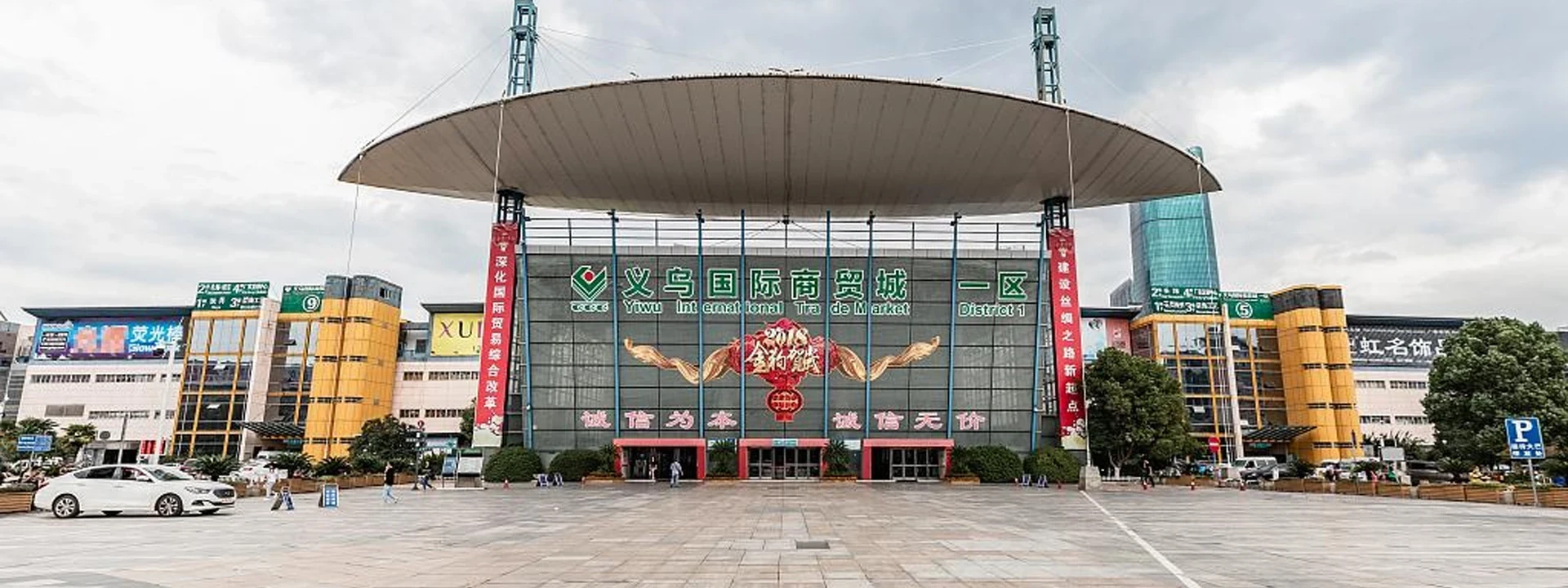

航空貨物:より速いがより高価。小さくて価値の高いアイテムに最適です。海の貨物:より安く、遅い。一括注文に最適です。たとえば、宝石などの軽量のアイテムを注文している場合、航空貨物がより実用的かもしれません。ただし、家具のようなかさばる商品の場合、海の貨物が行くべき道です。
商業送り状包装内容明細書船荷証券プロの調達エージェントであるマーケットユニオンも、プロセスの合理化を支援し、遅延や予期しないコストなしで商品が到着するようにします。購入を利益に変えるターゲット市場を特定します製品が手元にあると、次のステップは販売されます。ターゲットオーディエンスを定義し、それに応じて販売戦略を調整します。例えば:
AmazonまたはeBayの売り手
ブティックストアの所有者:顧客を引き付けるために、独自性とブランディングを強調します。あなたの製品のマーケティングとブランディング
ブランド認知を構築するため。
私の友人は、Yiwuから再利用可能なストローを調達し、環境に優しい製品を中心にプレミアムブランドを作成しました。思慮深いブランディングとInstagramの広告で、彼らは控えめな投資を繁栄するオンラインストアに変えました。あなたのビジネスをスケーリングします小さく始めて、製品をテストし、需要に基づいてスケーリングします。サプライヤーとの信頼を築きながら、より良い取引を交渉し、ユニークな製品の独占契約を探求します。
| 一般的な落とし穴とそれらを避ける方法 |
製品の品質を誤解しています |
:大量注文する前に、常にサンプルを要求してください。多くのYiwuサプライヤーは、公称料金でサンプル製品を送信することができます。 |
| 隠されたコストを無視します |
:収益性を計算する際の送料、関税、および潜在的な貯蔵料金の要因。 |
信頼できないサプライヤーと協力しています |
| :サプライヤーを徹底的に獣医。肯定的なレビューで、確立されたブースを探してください。 |
結論 |
Yiwu Marketは、起業家にとって機会の金メンです。適切な準備、交渉スキル、ロジスティクス計画により、旅行を非常に収益性の高いビジネスベンチャーに変えることができます。あなたが電子商取引の売り手、ブティックの所有者、または卸売業者であろうと、Yiwuはあなたのビジネスを拡大する無限の可能性を提供します。 |
| それで、あなたはあなたの次の大きな成功のためにあなたのYiwu市場旅行を足がかりに変える準備ができていますか?今日計画を開始しますが、誰が知っていますか?あなたの次のベストセラー製品は、ただのブース離れたものかもしれません! |
Yiwu Marketの詳細を知りたい場合は、 |
お問い合わせ |
| 包括的なガイド用。 |
靴、テキスタイル、車のアクセサリー |
スニーカー、生地、自動車用品 |
| 地区5 |
輸入品、家具、テキスタイル |
装飾、輸入工芸、家具 |
このテーブルは、より効率的にナビゲートし、ビジネスに最も関連するセクションをターゲットにするのに役立ちます。
自問してみてください:「この旅行から何を達成しようとしていますか?」新しい製品ラインを調達したり、既存の製品を拡張したりする場合でも、明確な目標を持つことで、集中し続けることができます。を含む予算を作成します。
製品コスト
旅行と宿泊施設
出荷および関税
英語の看板が存在しますが、多くの店主は主にマンダリンを話します。 aローカルエージェントまたは通訳のようにマーケットユニオン市場のコミュニケーション、交渉、ナビゲートを支援する上で非常に貴重な場合があります。 20年以上の経験を持つマーケットユニオンは、信頼できるサプライヤーに関する深いインサイダーの知識を持ち、交渉から物流まですべてを支援できます。
Yiwu Marketは非常に大きいため、計画が不可欠です。から始めます必見のブースのリストあなたの製品調査に基づいています。快適な靴を履き、水、スナック、パワーバンクなどの必需品を持ち歩きます。
個人的な逸話:Yiwuへの最初の訪問で、私は歩行量がどれだけ関与しているかを過小評価していました。一日の終わりまでに、私の足は痛く、私はまだ私のリストのすべてを見ていませんでした。学んだレッスン - 自分自身と優先順位付け!
交渉することを躊躇しないでください。予想されます。売り手は多くの場合、最初はより高い価格を引用し、交渉の余地を残します。ここにいくつかのヒントがあります:
低く始めますが、妥当です:売り手がユニットあたり10ドルを引用している場合は、6〜7ドルのカウンターを使用します。
バンドル取引:複数のアイテムを注文すると、多くの場合、より良い割引が得られます。
信頼関係を築きます:友好的な態度は、より良い条件を確保するのに大いに役立ちます。
後で驚きを避けるために、MOQと支払い条件について事前に尋ねることを忘れないでください。
出荷は方程式の重要な部分です。あなたはおそらく次のいずれかを選択します:
メールフォーマットエラー
emailCannotEmpty
emailDoesExist
pwdLetterLimtTip
inconsistentPwd
pwdLetterLimtTip
inconsistentPwd